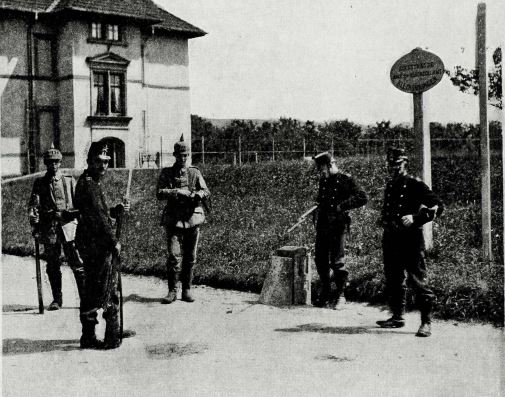https://www.thetimes.co.uk/edition/register/value-of-british-success-6r3js5prg
It seems a pity that it is necessary to speak of these operations in terms of geography, because, as often on the Somme, the smallness of the theatre, and the comparatively narrow depth of our advance, gives a misleading impression. It is much more valuable in the present phase of the war to put out of action 50,000 Germans and gain half a mile than to gain five miles and only inflict a loss of 10,000. Germany can better afford to give us ground than men, but what our Army wants is fighting. During the last few days the Germans have undoubtedly fought, and in some cases with great determination. It was necessary to delay us, and they were willing to pay an enormous price in order to move back their guns.
The absurdity of the German claims that the last operation was an attempt to break through is shown by the fact that at the nearest points we are still some 6,000 yards from the Quéant line. Precisely how any commander could be expected to attempt an attack on such a line when his men had 6,000 yards to go before reaching it is not easy to understand. The recent operation was purely local for the purpose of gaining certain objectives necessary to a methodical progress towards the Quéant line. The chief of those were the villages of Guémappe and Gavrelle, which we hold. We would have gladly gone farther but the defences here are so prickly that it would be too costly to rush them. There are other less expensive ways of getting such positions.
That the enemy attached supreme importance to the places captured is shown by their desperate efforts to recover them, by which he suffered infinitely greater loss than we declined to face in order to capture Roeux. On the map the operation is small, but interpreted in terms of damage done to German power, its importance is immense.
The weather continues fair, but cold and cloudy, being in the latter respect so much to the advantage of enemy aeroplanes, which like clouds and thick weather to shelter them.
April 27, 1917
Value of British success
The last 24 hours have been comparatively quiet, except for artillery and aerial activity. There has been no infantry operation of importance. Except for heavy shelling, the enemy seems to have exhausted himself and we are busy consolidating ground recently won.It seems a pity that it is necessary to speak of these operations in terms of geography, because, as often on the Somme, the smallness of the theatre, and the comparatively narrow depth of our advance, gives a misleading impression. It is much more valuable in the present phase of the war to put out of action 50,000 Germans and gain half a mile than to gain five miles and only inflict a loss of 10,000. Germany can better afford to give us ground than men, but what our Army wants is fighting. During the last few days the Germans have undoubtedly fought, and in some cases with great determination. It was necessary to delay us, and they were willing to pay an enormous price in order to move back their guns.
The absurdity of the German claims that the last operation was an attempt to break through is shown by the fact that at the nearest points we are still some 6,000 yards from the Quéant line. Precisely how any commander could be expected to attempt an attack on such a line when his men had 6,000 yards to go before reaching it is not easy to understand. The recent operation was purely local for the purpose of gaining certain objectives necessary to a methodical progress towards the Quéant line. The chief of those were the villages of Guémappe and Gavrelle, which we hold. We would have gladly gone farther but the defences here are so prickly that it would be too costly to rush them. There are other less expensive ways of getting such positions.
That the enemy attached supreme importance to the places captured is shown by their desperate efforts to recover them, by which he suffered infinitely greater loss than we declined to face in order to capture Roeux. On the map the operation is small, but interpreted in terms of damage done to German power, its importance is immense.
The weather continues fair, but cold and cloudy, being in the latter respect so much to the advantage of enemy aeroplanes, which like clouds and thick weather to shelter them.















